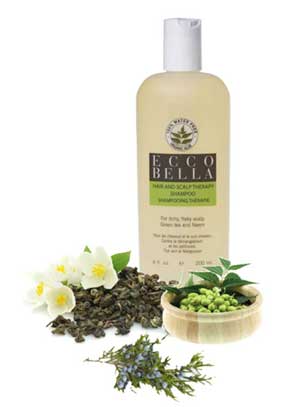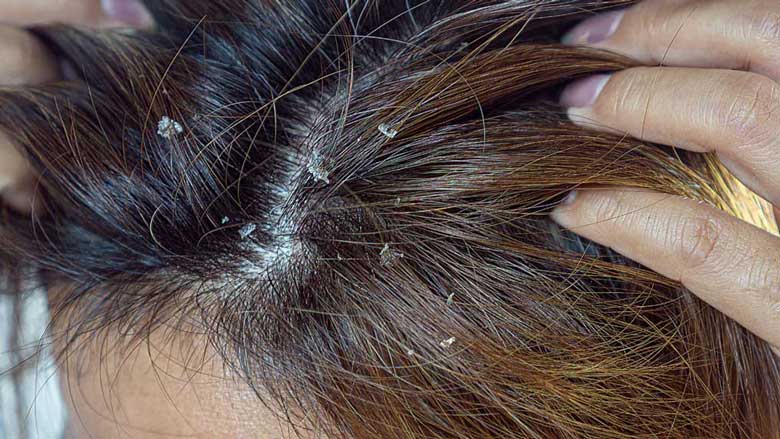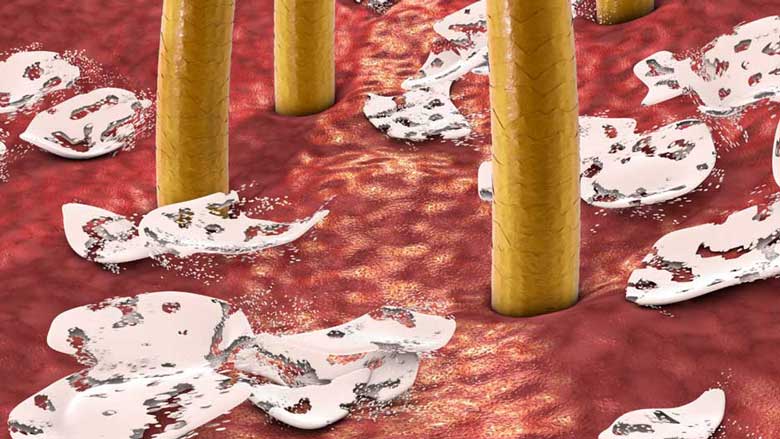Do I have scalp psoriasis or dandruff?
6th Jul 2021
Do I Have Dandruff or Scalp Psoriasis? Here's What You Need to Know.
If you’re currently experiencing or have previously experienced a dry, flaky, and itchy scalp then you might have dandruff or scalp psoriasis. These conditions are oftentimes confused as they have similar symptoms and there may be times of remission with both. However, one is more severe than the other, so it’s important to know the difference between them and the steps you should take to best care for your scalp.
Keep reading to learn more about whether you have scalp psoriasis or dandruff and what treatment options are available.
What’s The Difference Between Dandruff And Scalp Psoriasis?
The main difference between dandruff and scalp psoriasis is that dandruff is a common skin condition that is not chronic in nature and does not typically affect other areas of the body, whereas scalp psoriasis is an autoimmune disease that can spread. Scalp psoriasis can also increase the chances of developing another autoimmune disease because of a weakened immune system that attacks its own cells.
What is Dandruff?
Dandruff is a common skin condition that occurs on the scalp. It is superficial in nature, causing scalp flakes and leading to possible self-confidence damage. This means that dandruff is more of a cosmetic condition that is manageable rather than a long-term condition. You’ll typically find dandruff in places where you have hair, such as your head, eyebrows, or anywhere you have body hair.
Symptoms of dandruff include:
- Loose white flakes in your hair
- Itchy scalp
- Dry scales or greasy patches on the scalp
Multiple factors can lead to the development of dandruff such as dry weather, poor hair hygiene, allergic reactions, and oily skin. Additionally, men are more likely than women to experience dandruff because of testosterone levels. The sebaceous glands in men are stimulated during sex and cause testosterone to increase in natural oils which can cause a higher chance of dandruff development.
Those living with dandruff can typically treat their condition through altered lifestyle habits and improved hygiene practices to keep their skin and scalp hydrated and moisturized.
What Is Scalp Psoriasis?
Scalp psoriasis is a form of psoriasis which happens to be an autoimmune disease and is a bit more serious than dandruff. Psoriasis is a condition in which the immune system attacks healthy cells leading to patches of itchy, scaly, and inflamed skin. In the case of scalp psoriasis, these patches develop on the scalp and can cause much discomfort.
Symptoms of scalp psoriasis include:
- Dry scalp
- Flaking
- Bumpy patches of skin on the scalp
- Hair loss
There is no exact known cause of psoriasis, but some factors may trigger development such as a poor diet, lack of exercise, chronic stress, family history of psoriasis, and inflammation of the skin.
Since scalp psoriasis is a form of psoriasis, it can lead to plaques elsewhere on the body. It can also increase your chances of developing another autoimmune disease when left uncared for. This means that it’s important to treat scalp psoriasis as soon as possible and keep flare-ups under control when they occur to prevent it from spreading to other parts of the body.
What Should I Do If I Think I Have One of These Conditions?
If you’ve had common dandruff or scalp psoriasis symptoms, first consider speaking with your doctor about it. Sometimes the symptoms overlap, and it can be difficult to self-diagnose and know the best protocol. To diagnose your condition properly, your doctor may either examine your scalp for symptoms or send a small piece of skin to a lab to diagnose the condition scientifically and accurately.
Once you speak with your doctor, they will be able to help you find a treatment plan that works best for managing your condition. A common option for both is using an organic scalp therapy shampoo and conditioner to relieve itching and dryness. Typically, a natural, gentle shampoo can help reduce symptoms such as itching or redness.

Aside from an over-the-counter shampoo treatment, your dermatologist may suggest a prescribed shampoo with antifungal ingredients to ease dandruff symptoms. Other options for dandruff treatment include using tea tree oil, consuming healthy fats, and spending a few minutes in direct sunlight. Your doctor may also recommend reducing the hair styling products that you use to help the scalp regain its natural oils.
Psoriasis patients may be prescribed topical treatment such as calcipotriene or tazarotene. These treatments have anti-inflammatory properties that will slow down plaque build-up and reduce red patches. Other treatment options for scalp psoriasis include over-the-counter coal tar, prescribed steroids for patchy areas, anti-inflammatory pills, or ultraviolet light therapy.
Overall, the symptoms of scalp psoriasis and dandruff may be similar but there are key differences in how they are presented on the scalp. If over-the-counter shampoos do not help with your symptoms, visit a dermatologist to decipher which condition you have and create a treatment plan with the guidance of a medical professional.





